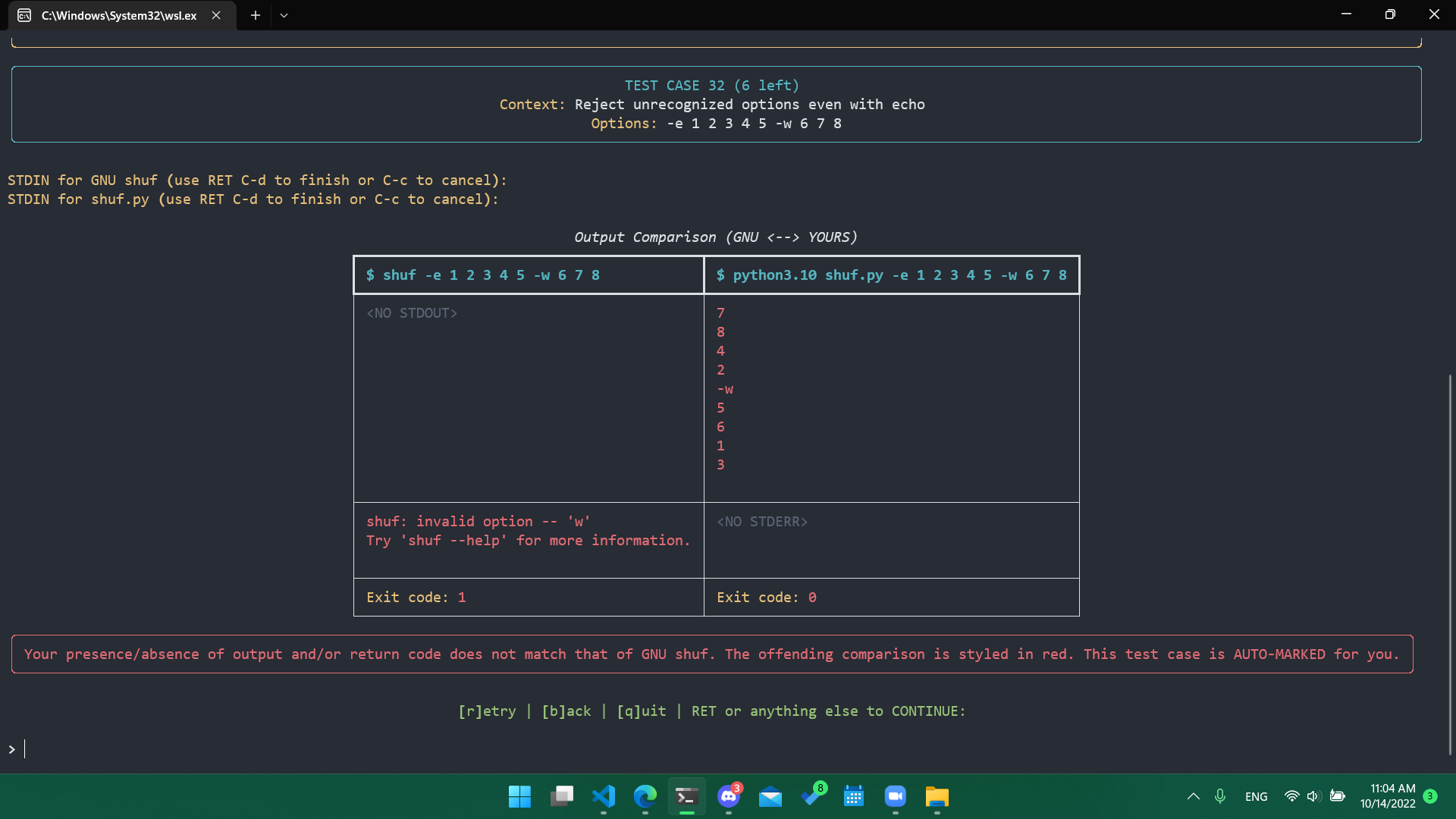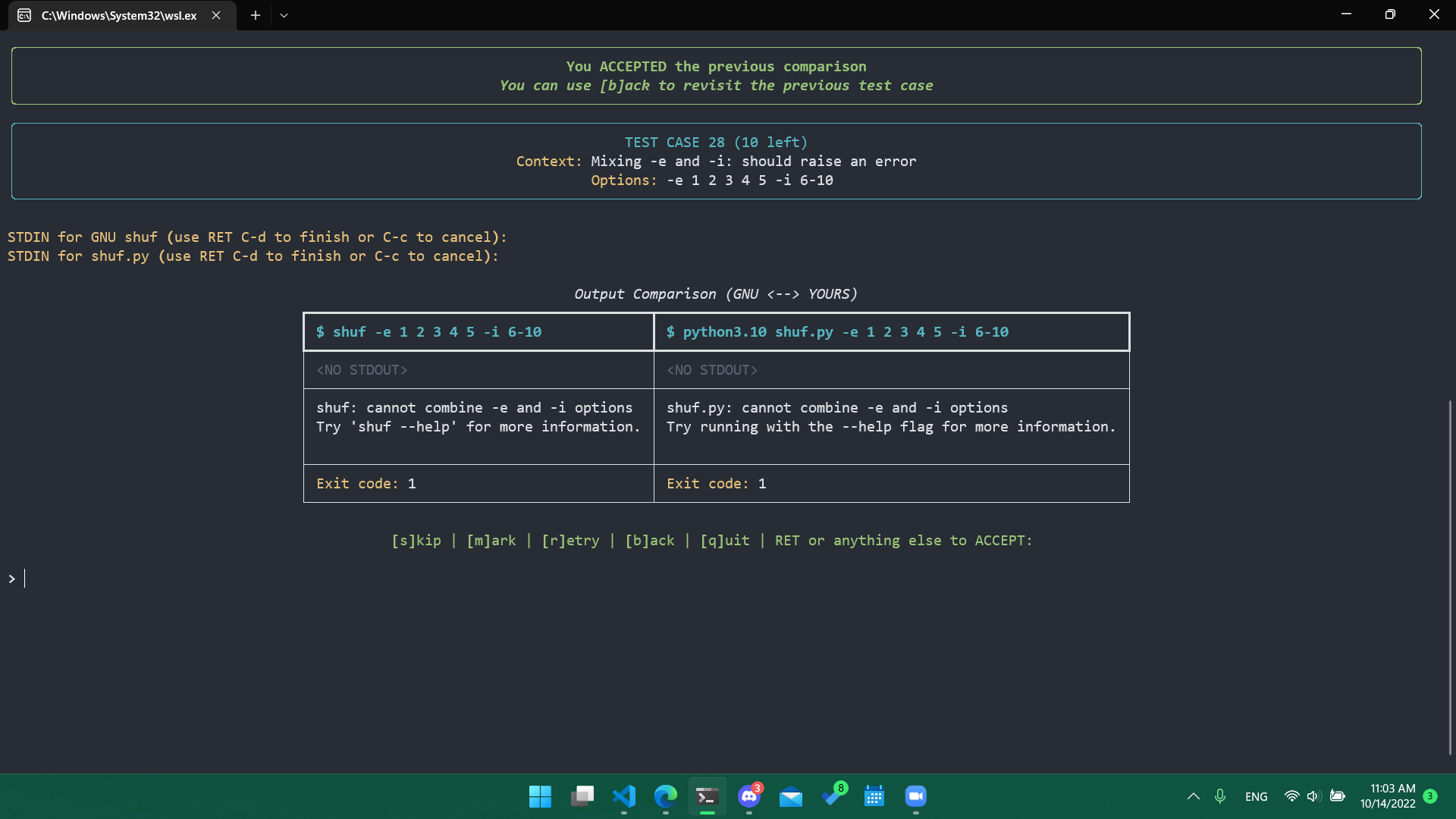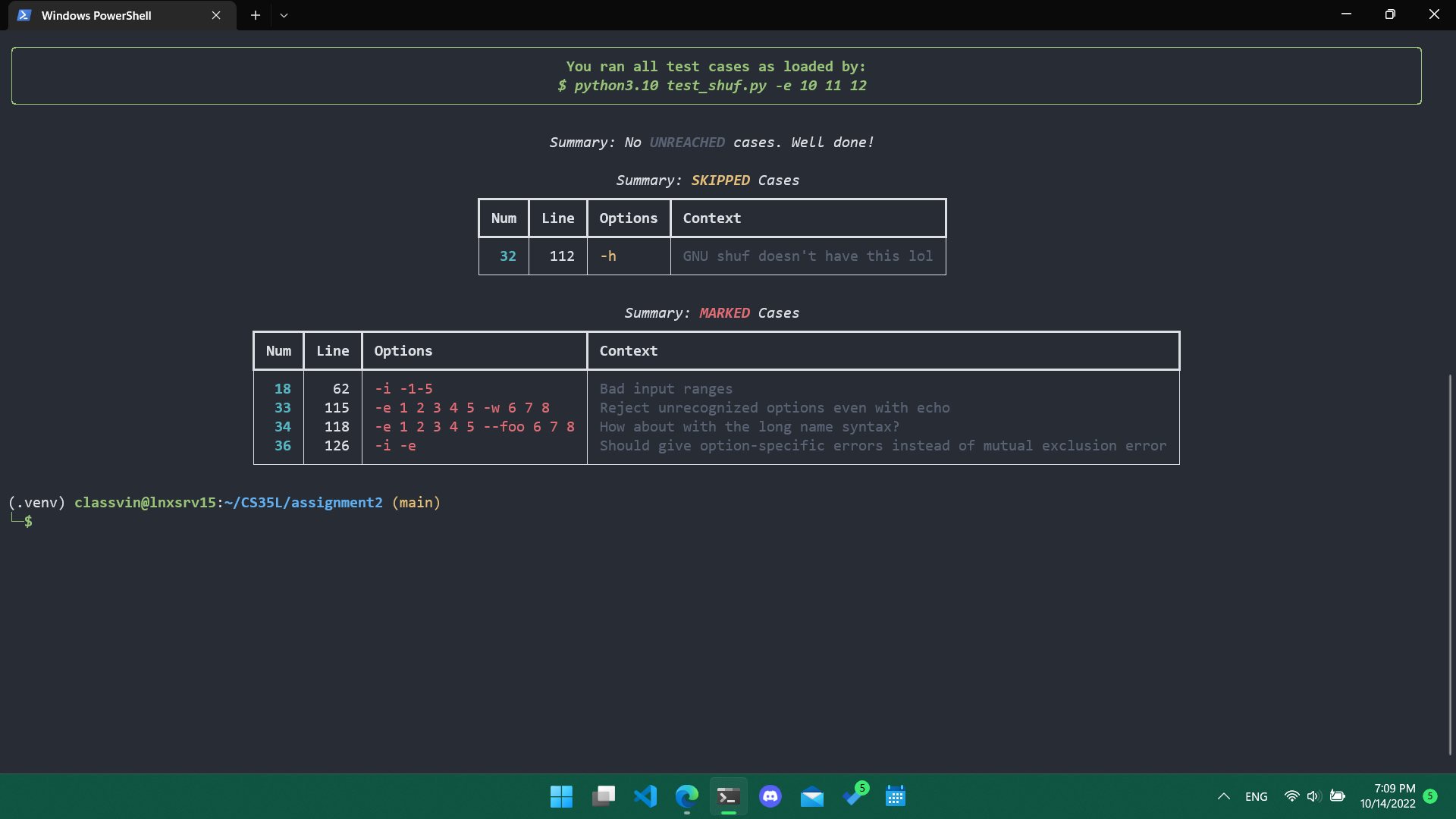Prerequisite: for the last time, make sure /usr/local/cs/bin is prepended to your PATH!
$ export PATH=/usr/local/cs/bin:$PATH
$ python3 --version # if this works, you're good
Python 3.xx.xOn the SEASnet server, navigate to the directory containing your shuf.py.
You can then download my distribution and extract it. I also recommend you set up a virtual environment before installing dependencies. If you trust me, paste this entire code block and it should work its magic:
curl https://raw.githubusercontent.com/vinlin24/test-shuf/main/test_shuf.tgz --output test_shuf.tgz
tar -xvf test_shuf.tgz
python3 -m venv .venv
source .venv/bin/activate
pip3 install rich
python3 test_shuf.py --helpMy script uses the rich library for fancy outputting.
If curl fails for whatever reason, just download the file from my GitHub and copy it onto the remote server, then resume the steps.
For the best experience, full-screen your terminal :D
To test with my provided test cases, run:
python3 test_shuf.py
Each test case is fed to you one screenful at a time. Compare the outputs. Hit RET to ACCEPT them, m to MARK them, etc. MARKED test cases will be presented to you on a summary screen at the end of the program for your review.
To modify or add more test cases, edit the test_cases file. You can reference the instructions and examples there to write your own. You can also tweak the test_input file.
emacs test_cases
emacs test_inputYou can preview how the test cases are loaded and parsed with:
python3 test_shuf.py --listThe script supports some command line arguments to give you control (albeit a bit limited) over what test cases to use:
python3 test_shuf.py --exclude 10 11 12
python3 test_shuf.py --include $(seq 32 36)
python3 test_shuf.py --custom-onlyAs usual, for more information about each option, run:
$ python3 test_shuf.py --help
usage: test_shuf.py [-h] [-l] [-c] [-i [CASE_NUMS ...] | -e [CASE_NUMS ...]]
Interactive tester for shuf.py.
options:
-h, --help show this help message and exit
-l, --list list the parsed test cases from test_cases and exit
-c, --custom-only only list or run your custom test cases
-i [CASE_NUMS ...], --include [CASE_NUMS ...]
include only these test cases (as numbered in --list)
-e [CASE_NUMS ...], --exclude [CASE_NUMS ...]
exclude these test cases (as numbered in --list)Quick Troubleshooting Note
If you get a ModuleNotFoundError for rich, that probably means you have since left the virtual environment, so reactivate it first with:
source .venv/bin/activateor just install it globally. It’s a beautiful library :)
pip3 install rich- Because output is meant to be random and help messages do not have to exactly match, it was very impractical to write a unit tester or other conventional testing mechanism. That's why this tester is interactive, and requires you to compare the outputs and ACCEPT or MARK the test cases.
- I do not claim my provided test cases to be an exhaustive list.
- I struggled implementing the I/O with cases involving stdin, so be sure to double-check such test cases on your own (e.g. manually entering entries capped with
C-d, or piping output into your shuf.py with|).
An example of the program automatically marking an egregious difference:


